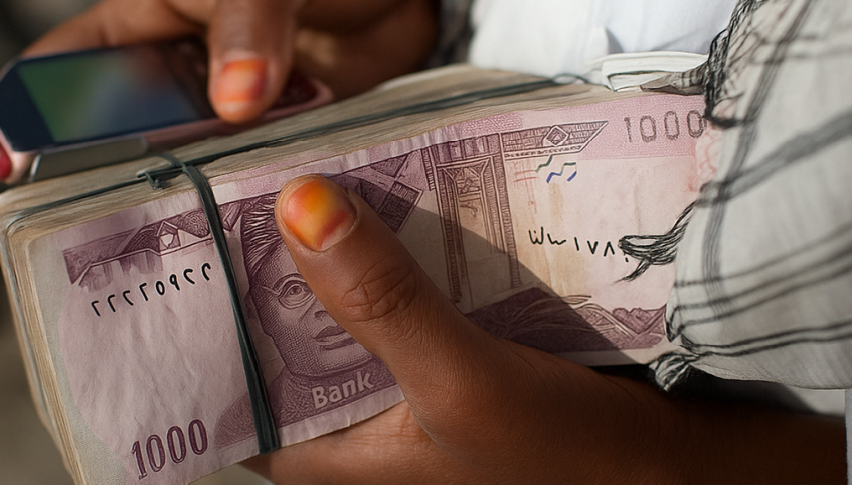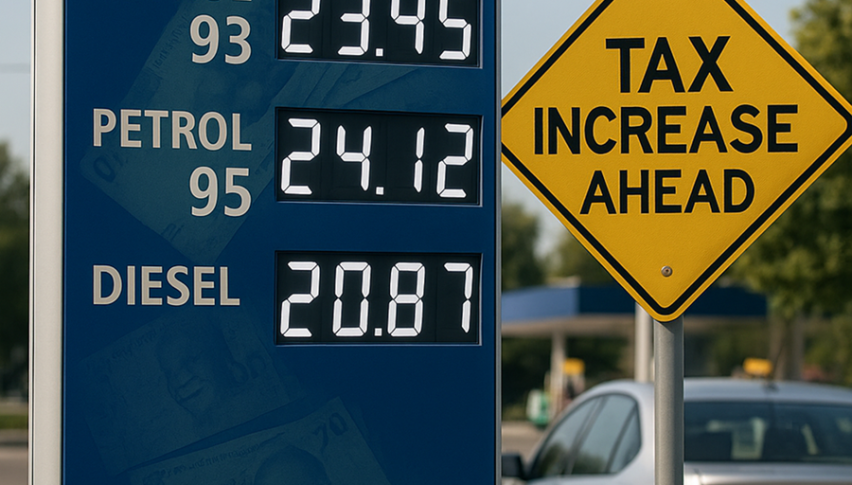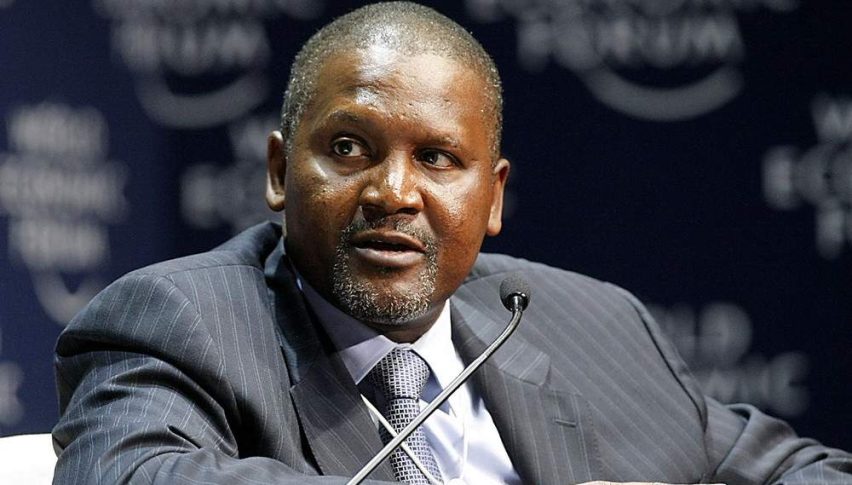Naira (NGN) Gains Further, But Watch Oil Prices As Nigeria’s CB Pauses
Slower business demand for dollars, improving market sentiment, and focused central bank actions have all helped to keep the Nigerian naira.

Quick overview
- Nigeria's Naira has shown signs of stabilization, closing at ₦1,599 to the dollar due to reduced corporate demand for dollars and Central Bank interventions.
- The Central Bank of Nigeria's recent strategies have contributed to a modest appreciation of the Naira, which has rebounded from significant depreciation earlier in 2023.
- Governor Yemi Cardoso attributes the Naira's stability to policy reforms that enhance competitiveness and improve market transparency, despite high interest rates posing challenges for investment.
- Concerns about external risks, including OPEC+ decisions and potential global economic slowdowns, continue to threaten Nigeria's foreign exchange sustainability.
Slower business demand for dollars, improving market sentiment, and focused central bank actions have all helped to keep the Nigerian naira stable.
Naira Firms as CBN Interventions Take Hold
After starting the week at ₦1,606 to the dollar on the official market, the Nigerian Naira closed Friday at ₦1,599, reflecting a modest but notable appreciation. The Central Bank of Nigeria (CBN) has been actively intervening in the foreign exchange market, and recent data suggests that its strategies are beginning to bear fruit.
On Monday, the Naira strengthened slightly to ₦1,597/$1, according to official data, and maintained a stable trajectory on Tuesday by closing at ₦1,598.72. This was a mild improvement from Friday’s rate of ₦1,599.01, as declining corporate dollar demand provided support. While interventions were limited during the week—apart from a small one on Friday—the combination of declining demand and a mild influx of foreign investment helped the naira maintain footing around the ₦1,600 mark.
From Freefall to Stability: A Recent Naira Timeline
Since early 2023, the Nigerian currency has undergone dramatic changes. From a value of ₦450/$1 in early 2023, the Naira plunged nearly 400% through early 2024, indicating significant depreciation. By December 2024, it had fallen to ₦1,450/$1 and remained under pressure into January 2025.
USD/NGN Chart Weekly – Falling Below MAs Would Shift the Trend to Bearish
However, in Q1 of 2025, the naira experienced a rebound. A surge in volatility driven by global trade tensions, including new U.S. tariffs, pushed USD/NGN to a peak of ₦1,645 in early April. Sellers met strong resistance at the 50-day simple moving average (SMA), which held the line and helped turn sentiment.
As the U.S. eased back on tariffs and global markets calmed, risk appetite returned, benefiting commodity-linked currencies like the Naira and leading to its current stabilization phase.
CBN’s Role and the Push for Competitiveness
Despite the relative market calm, CBN Governor Yemi Cardoso has been quick to attribute the Naira’s recent stability to policy reforms. He argued that the central bank’s monetary restructuring has made the Naira more competitive, reduced currency arbitrage opportunities, and helped level the playing field for exporters—particularly in Nigeria’s non-oil sectors.
Governor Cardoso also credited improved market transparency and investor trust as key drivers behind the rise in FX reserves. According to FMDQ data, the CBN recorded a net FX inflow of $2.61 billion between March and April. In addition, the CBN injected $40 million into banks during the past week to help maintain liquidity and support the Naira, though market forces have increasingly been allowed to determine rates.
However, despite these efforts, interest rates remain punishingly high at 27.50%, presenting a serious hurdle for business investments, credit access, and consumer spending in Nigeria.
Nigeria Keeps Interest Rates Steady as Inflation Pressure Cools
After months of economic turbulence, Nigeria’s central bank is holding its ground, opting for stability over further tightening.
In a unanimous decision, the Central Bank of Nigeria (CBN) has kept its benchmark interest rate unchanged at 27.5%, reinforcing a cautious monetary stance as recent data show promising signs of macroeconomic stability. This marks the second time in 2025 that the Monetary Policy Committee (MPC) has decided against raising rates, following an aggressive tightening cycle in late 2024.
Governor Olayemi Cardoso emphasized that the decision was underpinned by encouraging developments in key economic indicators. Most notable among these are a narrowing of exchange rate differentials, declining fuel prices, and early signs of relief in food inflation—all of which have contributed to moderating headline inflation.
Headline inflation slowed to 23.71% in April, a slight but meaningful retreat from previous months, providing policymakers with more breathing room. Cardoso noted that this improvement coincided with a more stable balance of payments and enhanced forex liquidity, reflecting stronger investor confidence and improved external accounts.
Fuel and Food Prices Ease, FX Gaps Narrow
Falling gasoline prices—a politically sensitive and inflation-driving component—have been instrumental in easing upward price pressures. Meanwhile, food inflation, a persistent concern for Nigerian households, has also shown initial signs of softening, though it remains elevated.
The foreign exchange market has also responded positively to recent reforms, with parallel market and official exchange rates gradually converging. This is helping to stabilize import costs and reduce speculative pressures.
Room for Measured Optimism
While inflation remains high by global standards, the central bank’s decision signals cautious optimism. Officials appear to believe that recent fiscal and monetary coordination, along with ongoing subsidy reforms, are beginning to anchor inflation expectations and improve overall economic sentiment.
Economists expect the CBN to remain vigilant, closely monitoring food price volatility and external risks, especially amid shifting global energy prices and potential volatility in oil revenues.
As Nigeria continues to navigate its post-pandemic and post-subsidy transition, the CBN’s choice to maintain rates suggests a strategy focused on economic balance, rather than risking a policy overcorrection.
External Risks Still Loom
While the short-term outlook appears stable, concerns remain. The recent decision by OPEC+ to boost crude oil production has created uncertainties about Nigeria’s future oil revenue—a critical source of foreign reserves. In addition, fears of a global economic slowdown may weigh on oil demand, posing further risks to Nigeria’s external balances and foreign exchange sustainability.
- Check out our free forex signals
- Follow the top economic events on FX Leaders economic calendar
- Trade better, discover more Forex Trading Strategies
- Open a FREE Trading Account




